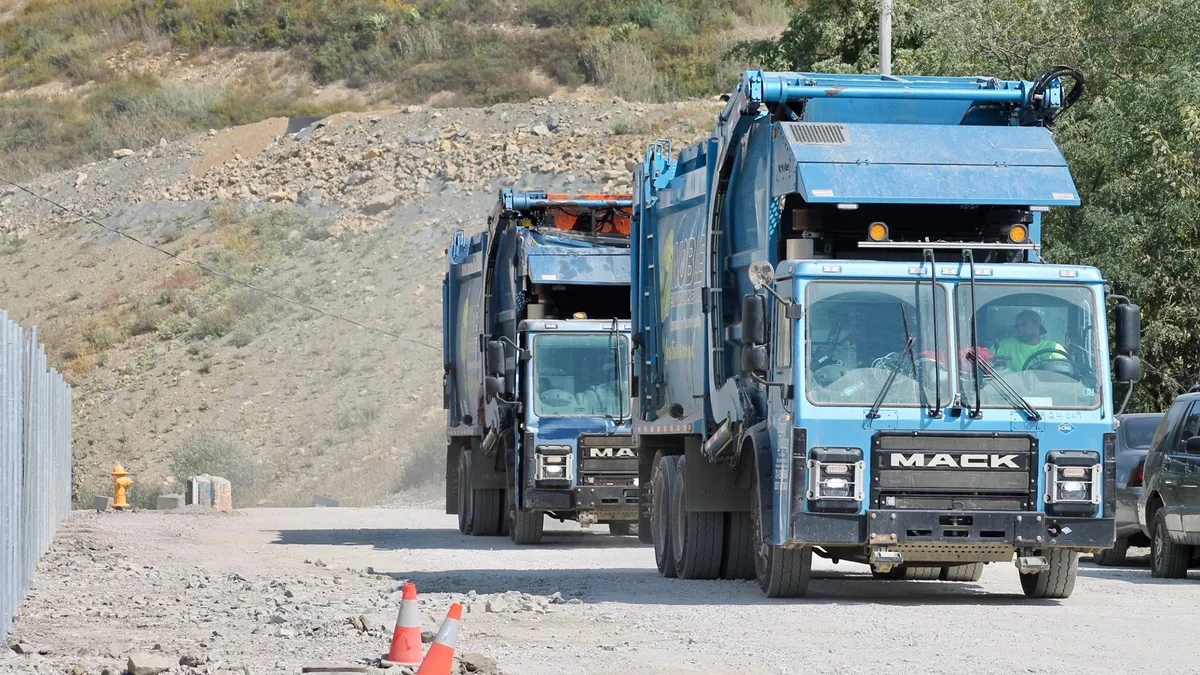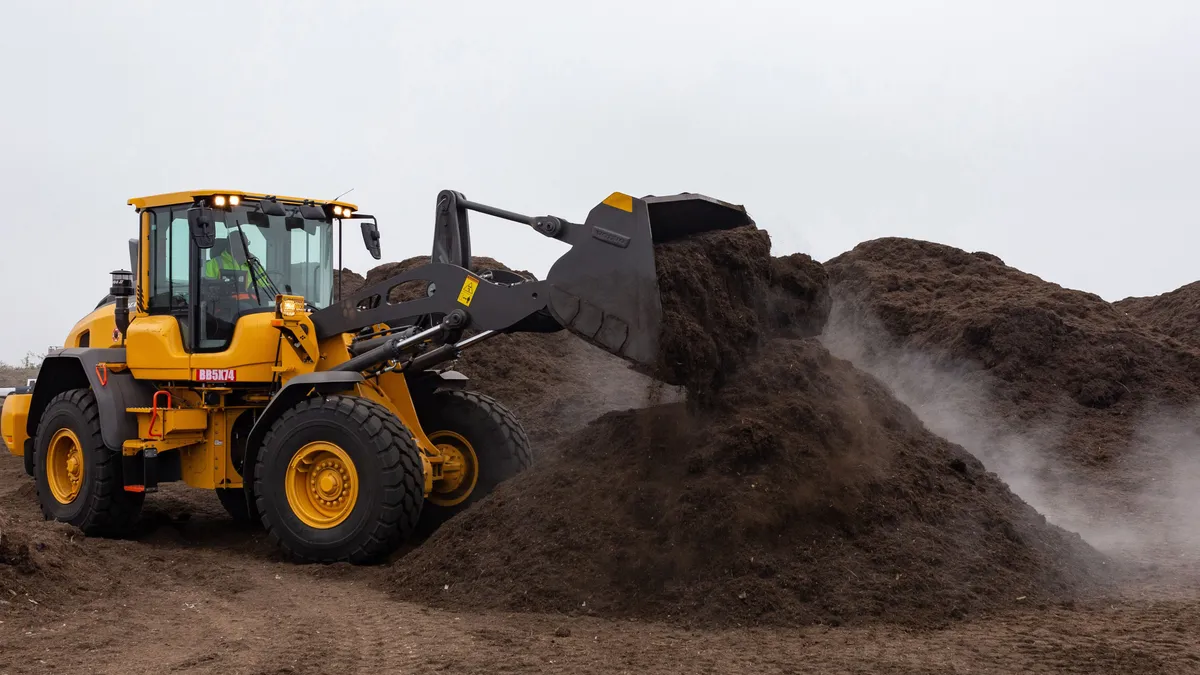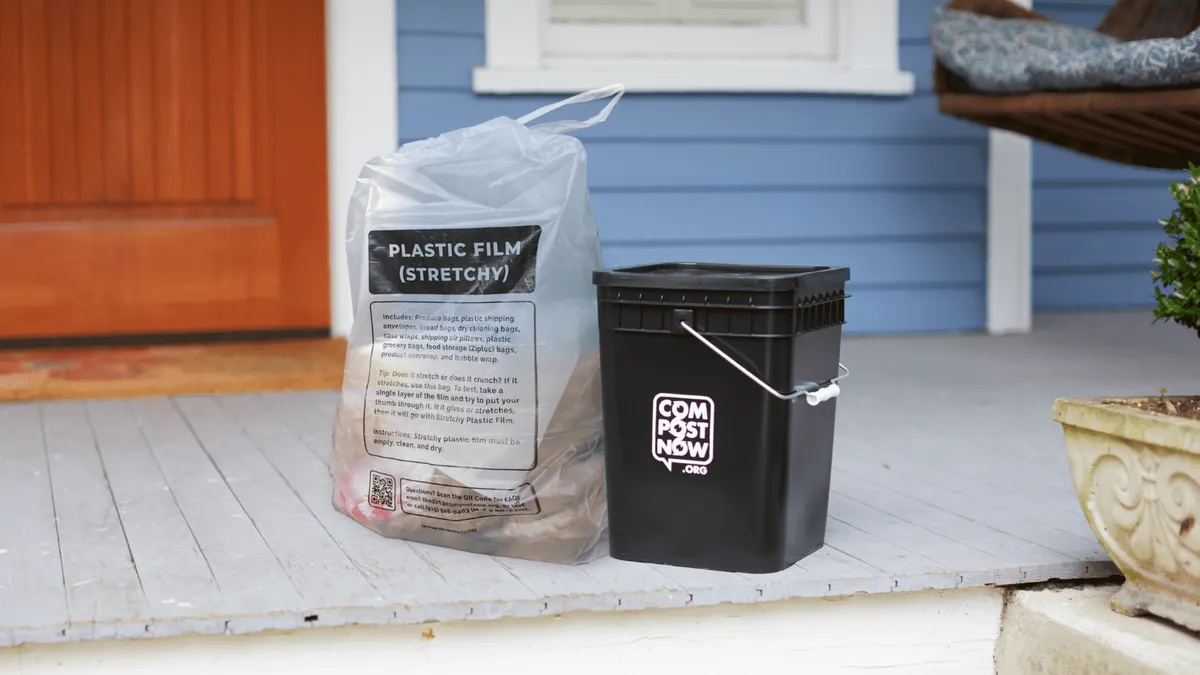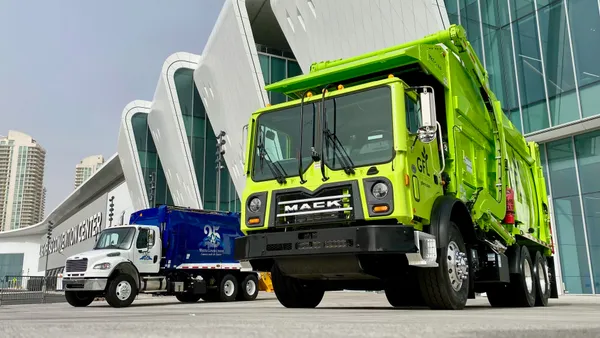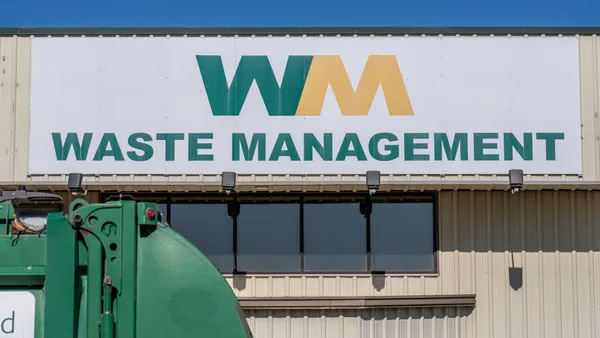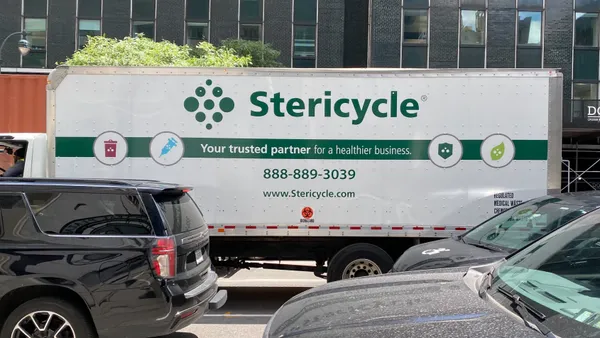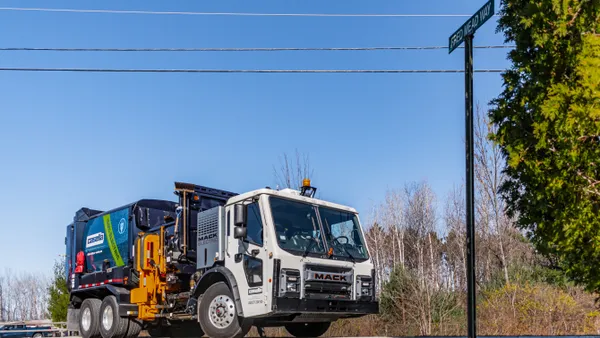Dive Brief:
- Noble Environmental recently acquired multiple disposal, transfer and collections assets from GFL Environmental in Pennsylvania and Maryland, marking a major expansion for the Pittsburgh-based private company. Financial terms were not disclosed, and GFL declined to comment.
- The deal included the Sandy Run Landfill, Chestnut Valley Landfill and Southern Alleghenies Landfill in Pennsylvania, as well as the Mountainview Landfill in Maryland. In Pennsylvania, Noble also acquired the Diller Transfer Station in Enola and hauling assets based in McClellandtown, Pennsylvania.
- Noble is now one of the largest private haulers in the Pennsylvania area and aims to establish a long-term presence. “We’re looking to be a regional hauling and landfill operator," said President Rich Walton. "There’s not a lot of regional people developing strong market concentration that aren’t looking to sell out very quickly. I’m looking to build the business and have a good company.”
Dive Insight:
The Waste Management-Advanced Disposal Services divestiture package attracted significant interest from more than 50 companies across multiple states, many of which hoped the U.S. Department of Justice might agree to split assets up into separate transactions. Walton confirmed Noble was among that group. While GFL ultimately bought the full multistate list in a $863.5 million deal, Noble ended up with the local assets it wanted after all.
Founded in 2016 by Walton and others, Noble Environmental started out with the Westmoreland Sanitary Landfill in western Pennsylvania and has expanded its presence through its County Hauling subsidiary.
Noble now has an estimated 150,000 residential collection points, along with a large roll-off business as well as commercial collection. The latest hauling assets acquired from GFL come with another 25,000 residential collection points as well as commercial accounts. In addition, Noble owns a C&D landfill across the Pennsylvania border in Ohio and a facility that processes oil and gas waste in West Virginia.
Walton is also co-founder of Archaea Energy, a company that recently went public with a focus on renewable natural gas projects at landfills and other sites.
According to U.S. EPA data, Sandy Run and Southern Alleghenies both have substantial remaining disposal capacity. While permitted capacity is expected to run out soon at the Chestnut Valley and Mountainview sites, Walton said he sees possibilities for new expansions at both.
GFL kept the Greentree Landfill in Pennsylvania, formerly owned by Advanced, due to what sources described as attractive opportunities to increase gas revenues. The company also still has a hauling presence in other parts of Pennsylvania via its prior County Waste acquisition.
After GFL's period of rapid growth in recent years, CEO Patrick Dovigi said in a February earnings call that the company might sell "underutilized" assets in certain non-core markets soon. While speculation is ongoing about what that could mean in the Chicago area, where Waste Management-Advanced assets were a key focal point of federal antitrust review, Pennsylvania was also considered a likely candidate.
"It’s not a surprise," said Hamzah Mazari, a managing director at Jefferies, via email. Mazari estimated GFL likely had around $150 million in non-core asset revenue, including these sites, that it was assessing. "We had heard Casella was also interested in these assets, but Noble likely had either more synergy and/or was willing to pay a higher multiple."
Casella Waste Systems previously expressed interest in possible Pennsylvania assets from the Waste Management-Advanced deal. The company declined to comment on whether it pursued them more recently.
Michael E. Hoffman, a managing director at Stifel, estimated this transaction represented at least half of what GFL planned to divest on a dollars basis and was only going to be the right fit for certain buyers in the region.
“I don’t think it’s any secret that Waste Management was successful in their negotiations with Justice in being able to extract the WM-controlled tons. So the volume that was going into the landfills was all third-party, predominantly, and whoever was going to be a buyer had to have a pathway to increase the control of collection that you internalize," he said.
One likely path for Noble's further growth would be for it to acquire additional collection assets around these new sites. If so, the company will be competing in an increasingly active landscape heading into the back half of the year.
"Pennsylvania has a lot of independents, so there is an opportunity to do that," Hoffman said. "It’ll be the same M&A environment everyone is living in."
Walton said more regional tuck-in deals are possible, but Noble is also taking a measured approach to its vertical integration strategy.
"We’re not going to chase down tons and tons of deals, but there’s good deals that come around," he said. "I feel comfortable going out and winning business and doing it organically."



